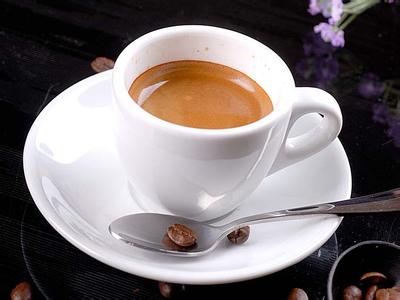Specialty espresso royal Copenhagen gourmet coffee

In Copenhagen, the capital of Denmark, Copenhagen is a palace in fairy tales and a destination of fashion sports. It is old but not old-fashioned, prosperous but not flashy, joyful but not annoying, conniving without losing control. Reason and joy dominate everything.
Denmark is located at the mouth of the North Sea and the Baltic Sea. Although the country is small, it has many islands, more than 400 large and small islands and more than 7400 kilometers of coastline. Copenhagen is located in the east of Siran Island, the largest island in Denmark, across the Strait of Erle and the important Swedish seaport of Malmo. It was originally a small fishing village. Due to the increasing prosperity of maritime trade, it developed into a commercial town at the beginning of the 12th century and became the capital of Denmark in 1443. In Danish, Copenhagen means "merchant's port" or "trade port".
Royal Copenhagen RoyalCopenhagen: has always had a high-quality evaluation of the royal Copenhagen. It has an unshakable position in the coffee market. At the table meeting, the royal Copenhagen, which enjoys the highest quality. There is no way to change the status of coffee in pursuit of the highest quality. The basic reason for the mellow flavor is that it is used from Brazil, the world-famous Krassi? The coffee beans used by Ficadotta.
Gourmet coffee covers a wide range of areas, and what it has in common is that it can make an extremely delicious cup of coffee. Farming methods, origin, planting altitude, soil conditions and climatic conditions all play a vital role in whether coffee beans can become gourmet coffee. Like different kinds of fine wines, gourmet coffee also includes different ripening times, different countries, and different regions. However, gourmet coffee has a unified feature, that is, it is made from the best coffee beans in the top coffee country of origin. It has the strictest production process and has ensured its highest quality. Gourmet coffee beans are carefully hand-selected, processed and classified in the countries where they are grown. After that, the coffee beans are roasted with high quality in their exporting countries. Switzerland, for example, does not produce coffee beans, but its roasting technology is among the best in the world. Finally, after a sophisticated production process, coffee fans can taste the gourmet coffee.
Gourmet coffee is often called professional coffee, and the more common varieties include the Blue Mountains of Jamaica, Puerto Rico, Royal Crystal and Colombia. In addition, it can also add some excipients to make coffee drinks with different flavors. It is worth noting that flavored coffee refers to the addition of seasoning to hot coffee beans so that they can be quickly absorbed after roasting. Gourmet coffee comes from the best Arabica beans. Arabica coffee tree is one of the most commonly grown coffee trees in the world. However, not all Arabica coffee is gourmet coffee. Moreover, the special growth conditions of Arabica coffee trees will determine whether they can become gourmet coffee. Therefore, when choosing and purchasing, we should know more about and test all aspects of it to ensure the quality.
As coffee fans know, Arabica coffee trees grow well at high elevations. Gourmet coffee usually comes from areas growing about 900 meters above sea level between the Tropic of Cancer and the tropics or subtropics. The taller Arabica coffee trees grow, the more likely they are to produce gourmet coffee beans. The higher the density of coffee beans, the better their quality. Altitude is also directly related to coffee density. The higher the altitude, the higher the coffee density. As a result, Arabica coffee trees at high altitudes are more likely to produce gourmet coffee.
Although special external conditions can help it become a gourmet coffee, it is not the only condition. What is more important is its growth. As coffee trade becomes more and more important to many countries, the process of coffee cultivation has changed greatly. The traditional way to grow coffee is to plant it in the shade of trees. Nowadays, many growers grow coffee in the wilderness. This change increases the output and reduces the cost of coffee beans, but only has a negative impact on its quality.
Therefore, most gourmet coffee is organic coffee. Organic coffee is made of beans grown in the shade of trees. Although the yield of the method of planting in the shade is not high, its quality can reach the level of gourmet coffee. This is because shading trees can slow down the ripening of coffee trees, give coffee beans full growth, and make them contain more natural sugar, better taste and less caffeine. In addition, organic coffee does not use pesticides or other chemicals that affect the taste of coffee.
However, special growth conditions are not the only factor determining whether it is gourmet coffee or not. Another factor is its precise mixing. When Arabica coffee beans are grown organically in excellent conditions, they generally produce gourmet coffee. However, this is not the case with the coffee market. This is because many coffee companies mix high-quality Arabica coffee beans with inferior coffee beans to reduce the quality of coffee in order to seek high profits. The content of Roberts beans in some mixed coffee is higher than that of Arabica coffee beans, resulting in a decline in the taste of coffee and an increase in caffeine levels. There are also some mixtures of Robster and Arabica of good quality, especially high-quality Italian roasted coffee. Of course, gourmet coffee is usually pure expensive Arabica coffee.
Important Notice :
前街咖啡 FrontStreet Coffee has moved to new addredd:
FrontStreet Coffee Address: 315,Donghua East Road,GuangZhou
Tel:020 38364473
- Prev

Jamaica Blue Mountain Coffee The Secret to Pure Taste
Jamaica's Blue Mountain Coffee is famous all over the world. Why does Blue Mountain Coffee taste so pure? What's the secret? I heard that Jamaica's Blue Mountain Coffee is famous all over the world, and I yearn for it for a long time. Not long ago, I took advantage of the opportunity to interview this Caribbean island country to appreciate the strong and thick aroma of Blue Mountain Coffee, and fulfilled a long-cherished wish in my heart. Drive from Kingston and follow the winding mountain road to
- Next

The History of Instant Coffee
The history of instant coffee in 1901, instant coffee was invented by SaetoriKato, a Japanese scientist working in Chicago, USA. GeorgeConstantLouisWashington invented the technology for mass production of instant coffee and introduced it to the market in 1910
Related
- Beginners will see the "Coffee pull flower" guide!
- What is the difference between ice blog purified milk and ordinary milk coffee?
- Why is the Philippines the largest producer of crops in Liberia?
- For coffee extraction, should the fine powder be retained?
- How does extracted espresso fill pressed powder? How much strength does it take to press the powder?
- How to make jasmine cold extract coffee? Is the jasmine + latte good?
- Will this little toy really make the coffee taste better? How does Lily Drip affect coffee extraction?
- Will the action of slapping the filter cup also affect coffee extraction?
- What's the difference between powder-to-water ratio and powder-to-liquid ratio?
- What is the Ethiopian local species? What does it have to do with Heirloom native species?

